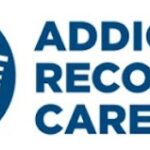SENATOR PHILLIP WHEELER’S LEGISLATIVE UPDATE

Week 10 of the 2024 Legislative Session
The Kentucky General Assembly has wrapped up the 10th legislative week of the 2024 Regular Session.
This week marked the session’s inaugural veto with House Bill (HB) 18. Both House and Senate majorities swiftly united to override the veto, emphasizing their commitment to safeguard property owner rights. Now, with provisions from Senate Bill (SB) 25 and an emergency clause, HB 18 becomes law.
The pace quickened this week with several measures seeking Senate approval:
SB 2 is the next phase in bolstering Kentucky’s nationally recognized school safety initiatives involving reinforcing safety protocols and advancing trauma-informed care across the state’s primary, elementary, middle, and high schools. To achieve this, SB 2 would establish a Kentucky Guardians Program, enabling honorably discharged military veterans, retired Kentucky state troopers, and other retired law enforcement officers and former federal agents to contribute as an additional line of defense for students against potential threats. These guardians would collaborate with school resource officers, filling in the gaps caused by workforce challenges until the districts can meet the SRO requirement. They would wear a distinctive uniform and be permitted to carry concealed weapons on school premises. Decisions regarding the hiring of guardians would be left to local school boards. It also mandates cooperation between local boards and law enforcement to ensure the easy identification of guardians by external agencies. Moreover, the initiative would integrate school guidance counselors, psychologists, social workers, SROs, and mental health service providers into a comprehensive team. This multidisciplinary strategy aims to provide support for students affected by trauma, identify mental health issues, and foster resilience and wellness among all students. Additionally, there will be an increase in suicide awareness training for both staff and students.
SB 27 aims to tackle purchasing restrictions placed by drug manufacturers on health care providers in the 340B program, designed to help providers access discounted drugs for optimal utilization of federal resources. The bill seeks to prevent manufacturers from withholding 340B pricing based on the state and prohibits discriminatory conditions, limitations, or delays in selling or purchasing covered drugs. It would establish terms under which a condition, limitation, or delay on the sale or purchase of a covered drug is permitted, which include an express requirement under federal or state law or if a manufacturer can prove it is beyond its control. Finally, the bill would empower the attorney general to investigate violations, ensuring alignment with existing laws.
SB 58 would provide Kentucky residents with greater ease of petitioning taxes imposed on them by allowing any registered voter in the district to file a petition to protest the passage of the tax. The bill would remove the requirements that a petition committee is formed and an affidavit be filed with the county clerk, that the county clerk publishes a notice about the tax rate challenge in the newspaper, and that the petition signees put their Social Security number or the name and number of their designated voting precinct on the petition. Additionally, it would allow each petition sheet to contain voters’ names from more than one voting precinct.
SB 111 requires Medicaid, state-regulated private health insurance policies, and self-insured state and local government health plans that offer habilitative or rehabilitative services to provide therapy for stuttering. Coverage may not be subject to a maximum annual benefit limit, including some visits, limited on condition(s) that resulted in stuttering, or to utilization review or management requirements, including prior authorization or determination that services are medically necessary. Speech therapy services may be provided in person or via telehealth. Telehealth services must meet requirements laid out in state and federal statutes. The bill applies to certain policies, certificates, plans, and contracts issued or renewed on or after Jan.1, 2025.
SB 142 aims to provide family support to Kentucky state employees by enabling new parents to spend quality time at home with their children during their earliest life stages. Under this proposal, commonwealth employees would be granted up to four weeks of paid leave for childbirth or adoption and up to two weeks for foster or kinship care placement. Employees would need to have completed at least 12 months of service and met a specific threshold of hours worked immediately preceding the first day of the paid parental leave. Furthermore, the paid leave would need to be utilized within 12 months following the birth, adoption, foster care placement, or kinship care placement.
SB 147 would protect Kentucky children’s safety, health, and welfare by establishing state-wide standards for adult-oriented businesses. Under this prospective law, zoning regulations would be implemented on adult entertainment establishments regarding how close they can be to children’s amusement establishments, educational buildings, places of worship, parks, and recreational areas. Moreover, adult-oriented businesses would be required to adopt official policies, practices, and procedures to prevent minors from gaining access. The legislation would also prohibit outside displays of nudity or sexual conduct. To address concerns related to sexually explicit drag performances, the proposed law would expressly prohibit them on state and local government properties, including libraries and other locations catering to minors.
SB 153 allows individuals 70 or older to elect to be permanently excused from jury service. This option would have to be prominently displayed at the top of the juror qualification form, and prospective jurors age 70 or older would have to complete only the entries for name, address, and date of birth on the form. The bill would allow an automatic and permanent exemption from jury service for individuals 70 or older.
SB 164 is a workforce and education measure making it easier for individuals to obtain professional licenses, such as those for electricians, plumbers, and heating, ventilation, and air conditioning. According to the U.S. Chamber of Commerce, trade, transportation, and utility jobs comprise over 21 percent of Kentucky’s employment. There are over 111,000 job openings. Kentucky also has the seventh-lowest workforce participation rate (57.6 percent). It would require the Kentucky Department of Housing, Buildings, and Construction to recognize and respect agreements between licensed private schools, public school districts, or state technology centers. These agreements allow for the recognition of academic or training equivalencies. The licensed proprietary school must be a department-approved education provider or have a training course acceptable to the department.
SB 167 aims to strengthen communication skills, enhance fine motor skills, and stimulate creativity and learning in Kentucky students by requiring cursive writing as a course in elementary schools starting from the 2025-26 academic year. The bill would require proficiency in cursive writing by the end of the fifth grade.
SB 194 authorizes insurers to provide electronic communications to persons covered under an employer-sponsored group health insurance policy, plan, or contract. Employers may consent to the electronic delivery of communications if they confirm an employer-sponsored group member or dependent was allowed to opt out of the electronic delivery and will be allowed to opt out of delivery by electronic means annually. This only applies to contracts entered or renewed on or after the act’s effective date.
SB 202 aims to improve rehabilitation, enhance public safety, and prevent future crimes. It would allow the parole board to mandate participation in a violence reduction program as a parole condition. It would also allow courts to impose participation in a violence reduction program as a condition of probation or conditional discharge, providing judicial flexibility and contributing to community well-being.
SB 215 would prohibit state government agencies or political subdivisions from mandating the purchase or sale of electric vehicles by preventing air emissions standards like that of California from being enforced in Kentucky. In 2020, the California Air Resource Board required 35 percent of all vehicles sold in the state to be electric by 2026 and all vehicles sold in California in total to be electric by 2035.
SB 240 is a pro-family and workforce modernization measure that decreases barriers facing families who wish to participate in foster care by allowing foster parents in Kentucky to qualify for child care benefits while working outside the home or working remotely in the home. An existing and inconsistent regulation requires people to work outside the home at least 20 hours a week to qualify for child care support.
SB 244 addresses the primary ballot order for candidates in statewide races. The legislation would change the process for determining the ballot order to a draw. It would allow each candidate to be number one on the ballot. Under the current process, those whose names start with letters near the end of the alphabet have no chance of having their name appear near the top of the ballot.
SB 249 aims to protect Kentucky children and enhance public awareness as it relates to threats within communities by requiring sex offenders to display their full legal name on social media platform accounts. The legislation would also establish a Class A misdemeanor for a first offense and a Class D felony for second and subsequent offenses.
SB 255 strengthens and modernizes social worker services in the commonwealth by establishing standards for telehealth services. It would require social workers providing telehealth services to disclose privacy and confidentiality risks to clients, assess clients for suitability for telehealth services, maintain the same care standards as in-person services, avoid fee-splitting and deceptive advertising, complete a board-approved two-hour telehealth training, verify and document client location during services, obtain alternative contact means from clients, provide communication information and use secure platforms and document telehealth services in client records. The bill provides an exemption for social workers handling 988 crisis line calls.
SB 265 further addresses the teacher workforce shortage. This bill would modify the Option 7 alternative teacher certification pathway. Option 7 is designed for individuals seeking a career change and holding a bachelor’s degree with a declared academic major in the desired certification area. Under the proposed changes, the initial candidate requirement to achieve a passing score on the GRE or CASE before enrollment in an approved institute, as designated by the Education Professional Standards Board, would be removed. Instead, provisional certification would be granted upon qualifying and enrolling in an approved institute. Additionally, the legislation contains an emergency provision, meaning it would become effective immediately upon filing with the Kentucky Secretary of State’s Office.
Senate Joint Resolution (SJR) 149 would direct the Energy and Environment Cabinet to provide guidance and consult with entities that discharge into the commonwealth’s water supply on the best management practice for perfluoroalkyl and polyfluoroalkyl substances (PFAS), more commonly known as forever chemicals.
Find more on these bills online at Legislature.ky.gov and visit KYSenateRepublicans.com for news releases from the Senate Majority Caucus.
We are now more than 2/3 of the way through the legislative session. As the final three weeks progress, you will see more and more bills passing through the legislative chambers and final negotiations occur between the House and Senate. In addition, we will be passing the state budget and the state’s 6-year road plan. I will continue to fight for our region to make sure that it gets its “fair share.”
Thank you for your continued engagement in the 2024 Regular Session. It is a privilege to represent you in Frankfort.
I’m excited for this session and take my responsibilities representing you seriously, and will continue to ensure that legislation is passed with eastern Kentucky’s best interest in mind. Please do not hesitate to contact my office if I or my staff can assist you by emailing me at Phillip.Wheeler@lrc.ky.gov or call toll-free at 1-800-372-7181.
###
Senator Phillip Wheeler, R-Pikeville, represents Kentucky’s 31st Senate District, including Elliott, Johnson, Lawrence, Martin, and Pike Counties. Wheeler is vice chair of the Senate Economic Development, Tourism, and Labor, and the Senate Judiciary committees. He is also Capital Planning Advisory Board co-chair. Additionally, Wheeler serves as a member of the Senate Transportation, Natural Resources and Energy, State and Local Government, and Transportation committees.














